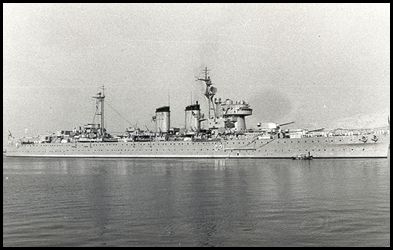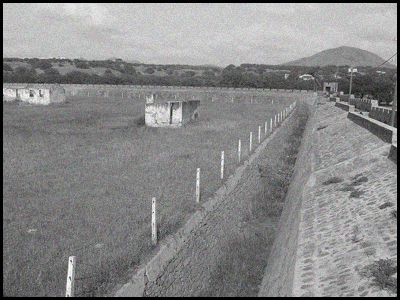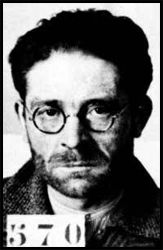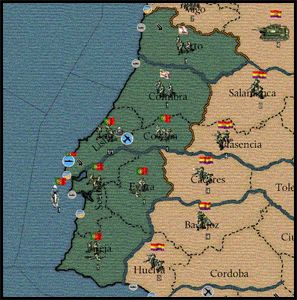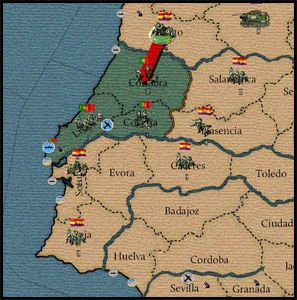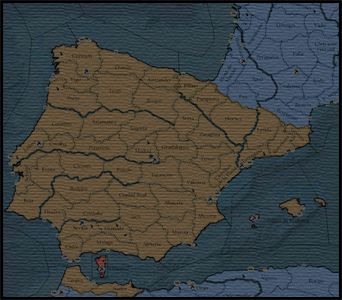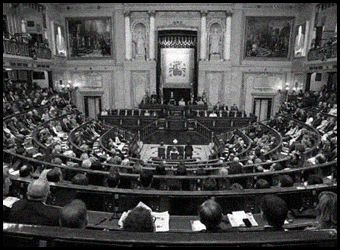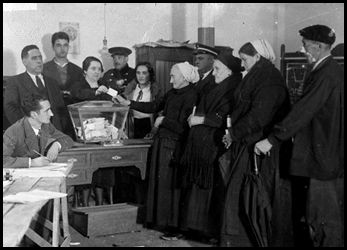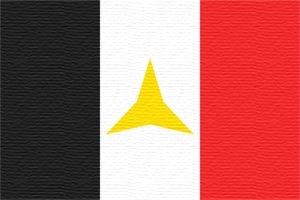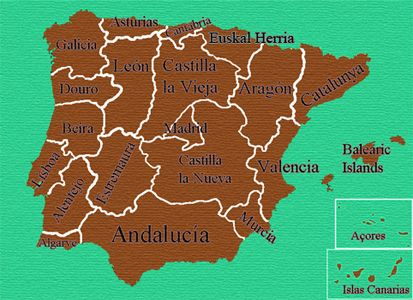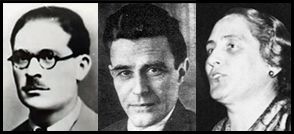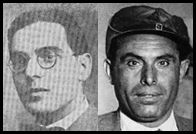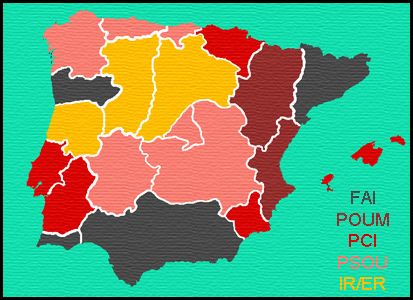Iberia in Flames
Unifying a Peninsula
ARE Canarias, heavy cruiser of the Spanish navy
December 7, 1937
The first signs of morning were beginning to emerge far away to the east, and the sea was bright and calm. A tall and strong man, standing on the prow of the ARE Canarias, his hands behind his back, nervously observed the horizon, a drop of cold sweat trickling slowly down his cheek. He wore military boots and an olive green uniform, on his head a red beret with the symbol of the Ejército Popular de la República, a gold-trimmed red star, in it. On the left side of his jacket there was a name tape, with “Borrell” written on it. His thought was interrupted when another soldier, who was walking slowly towards the tip of the ship, stopped beside him, waiting for the captain to say something.
-Major.
-Francesc, you seem disturbed, and this is strange behavior for a man who faced the worst war has to offer. What troubles your mind?
-Nothing sir, I just miss my home. I’m here thinking this is the last thing that separates me from it, this one last mission.
-I known this is no easy mission, but we have only the best here with us. Stay focused, and you’ll be home before you know it. And I already told you not to call me sir.
-Yes, sir.
Major Ortiz gave a loud laugh, told the captain to go to the bridge for a last briefing before the mission, and then turned and went away whistling. When the captain was sure he was already out of sight of his superior he took from one of the several pockets of his uniform a small picture of a woman and a small boy hugging, repeated to himself “I just miss my home”, turned, and began his path towards the bridge.
When Cap. Borrell returned to the deck, he could already see the island of Santiago, the biggest of the archipelago of Cape Verde, to the south. With the sound of a siren, which signaled the beginning of the mission, the soldiers started to climb down the ropes towards their respective boats. When all were properly positioned, the boats began the trip towards the beach. They landed a few minutes later, and silence and night still reigned on the island. That was good.
The sun was beginning to emerge when they arrived at the Campo do Tarrafal. The penal colony was completely surrounded by a wall with sentries, and even though the forest was covering the Spanish soldiers, there were a good hundred meters of open ground between the trees and the camp, and there they would be vulnerable. The captain picked up the radio and ordered the team on the beach to fire the mortars. After a few seconds, the penal colony was rudely awakened by flames and explosions, and confusion ensued in it, with soldiers running in all directions without properly understanding what was happening.
The experienced captain seized the moment and ordered the attack. Dozens of soldiers emerged from the woods, ran quickly towards the wall and, using hooks and ropes, easily surpassed this last obstacle to get in the camp. When the defenders realized what was happening, hell ensued, with a violent shootout in which the disorganized Portuguese soldiers were being slaughtered. Captain Borrell assembled some of his best soldiers, and saying “you know the priority”, led them to one of the cell blocks.
The breaching charge exploded, transforming the door into little more than small wooden chips, and the soldiers entered the room, quickly neutralizing the two guards inside. The block was quite simple, just a long corridor with cells on both sides. The soldiers ran to the end of it, and there, in the last room, exactly where the military intelligence said he would be, was prisoner 570. The man, unshaven and with a messy hair, was dressed in a shabby suit, reading a small book with his round glasses, apparently ignoring all the confusion that occurred outside the building, and the rapid exchange of gunfire inside. Borrell asked:
-Bento António Gonçalves?
-That’s me, if I recall correctly – said the man, without taking his eyes from the book.
-We are here to rescue you.
-A Catalan soldier, am I right? I’m not sure if I can trust you, but you don’t seem to be asking.
The conversation was suddenly interrupted when a Portuguese officer ran into the room, firing his pistol. A rifle quickly put him down, but not before he could shoot some bullets. Borrell looked around and, behind him, one of his soldiers was lying dead on the floor, his chest riddled with bullets. The captain sadly observed a few more seconds his lifeless comrade, and then ordered:
-Let’s get out of here! Find the keys, it should be in one of these dead guards, and take the body with us. We bury our dead.
Mugshot of Bento Gonçalves
They left the building, and the conflict was nearing its end in the camp, with Portuguese soldiers killed or surrendering all around. When the job was finished, the Spanish soldiers placed demolition charges in the whole penal colony and then withdrew back to the coast, where they took the boats back to the ship.
When they arrived back in the Canarias, the Spanish fleet was firing on the island, beginning the invasion. Major Ortiz was waiting on deck to congratulate the soldiers for the success of the mission, and when the commander withdrew, Bento Gonçalves approached Borrell:
-I’m sorry captain, I’m sure he was a good man.
-Thank you, he was one of the best. But this is war, and soldiers die in war. He was not the first, and most certainly won’t be the last.
-------------------------------------------------------------------------------------------------------------------------------------------------
The decision to invade Portugal after dealing with the Nationalist threat was already made before the end of the civil war. The Popular Front considered dangerous the presence of a fascist country on the Iberian Peninsula, especially one that had already shown willingness to take action against the Spanish Republic. The chances of a war against a fascist power, especially Italy, were quite big, and if that happened, a Salazarist Portugal would be extremely dangerous for Spain, providing a bridgehead for enemy troops to invade the peninsula. Thus, it was decided that the Estado Novo had to end.
The attack on Cape Verde was the initial move of the invasion. Spain had the intentions of liberating the anarchist and communist leadership arrested in the penal colony of Tarrafal, and if this was not done in the beginning of the conflict, it could’ve become impossible later. Shortly after the attack on the Atlantic archipelago, Spanish forces started an all-out offensive against Portugal itself. Superior in numbers and in equipment, the Spanish forces advanced with rather ease. Less than one month after the beginning of the invasion, half of Portugal was already occupied. Spanish troops had taken the Algarve and Alentejo in the south, and were stationed at the southern bank of the Tejo. Up in the north, they had already conquered Porto, and were crossing the Douro River quite easily.
Spanish forces advance with ease
The news of the liberation of Bento Gonçalves and other resistance leaders, such as the anarchist Arnaldo Simões Januário, arrived in Lisbon on December 23, by the hands of Spanish agents, and quickly spread throughout the city. Demonstrations against the government began to happen all over the city, and they soon became a widespread revolt, with anarchist and communist militias facing government troops in a fierce urban battle.
Spanish troops entered Lisbon in the second day of January, carrying flags of the Popular Front and of the leftist organizations that were part of it. They were hailed as liberators by the people, rapidly joining the militias in the victory festivities. The palace of the government had fallen, and the fascist leadership was nowhere to be found. The whole Iberian Peninsula was now in the hands of the Popular Front, and its victory was complete.
. Still eager to see how the contradiction within the Republican camp between the revolutionaries and those who merely opposed reaction turns out. No matter what, Spain is not done with political violence just yet.



